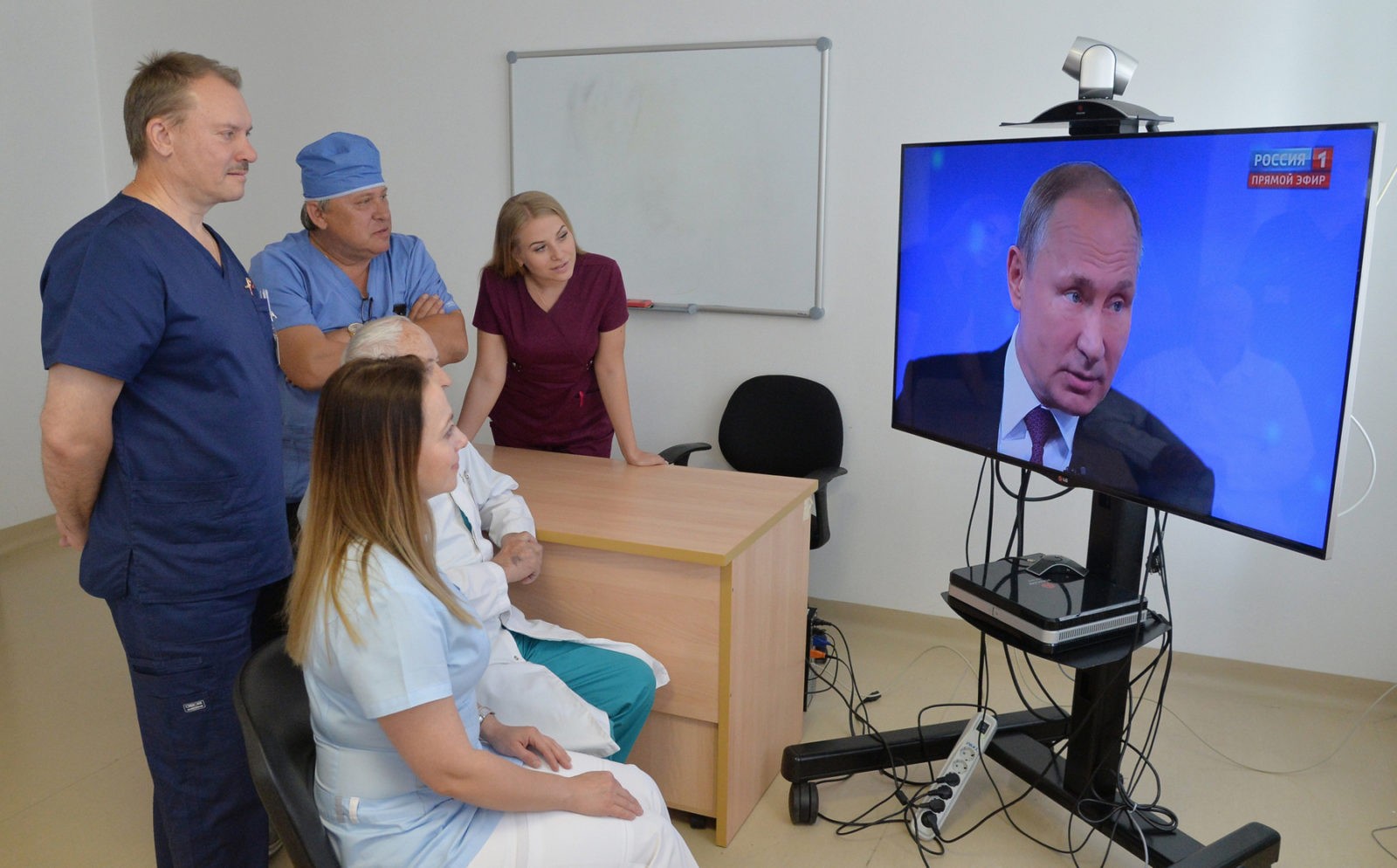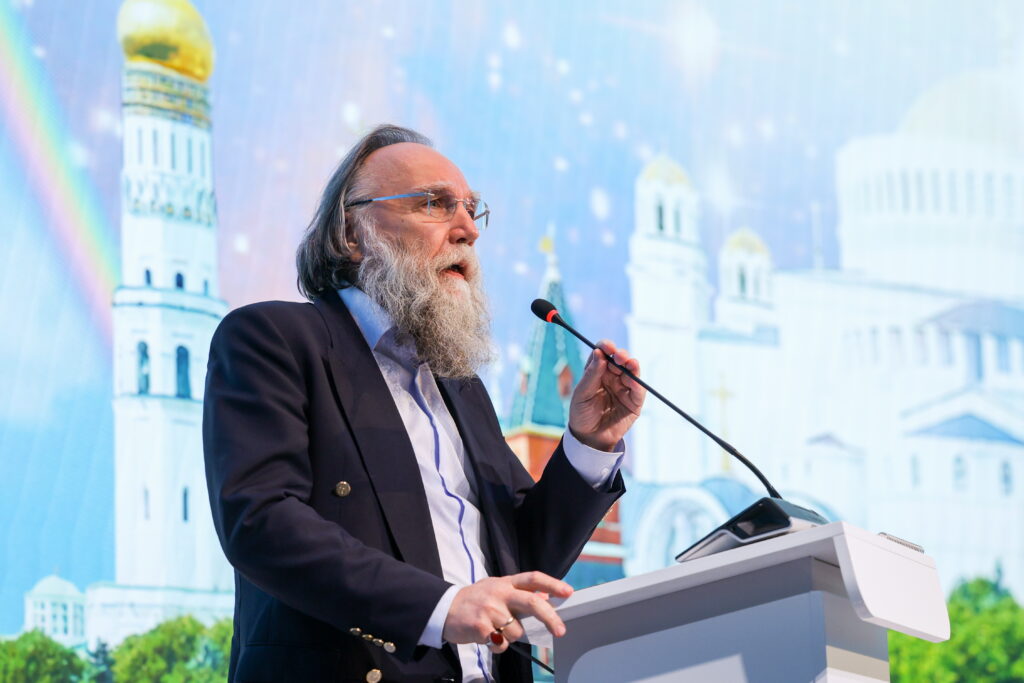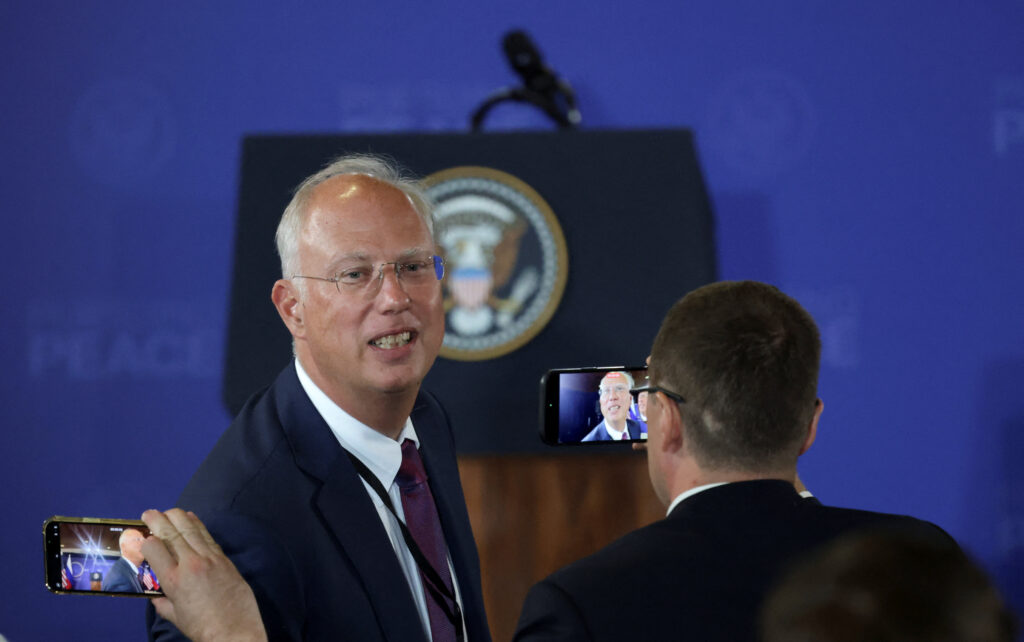According to political analyst Adam Przeworski, authoritarianism rests on the pillars of economic prosperity, fear, and lies. Indeed, a growing economy can sustain any political regime (albeit with a few important concessions). As for the regime’s reliance on fear, this is clearly illustrated by the Russian authorities’ reaction to the events in Moscow this August. But here, we shall focus on how the third pillar of any authoritarian regime works – lies.
Yegor Zhukov, a 21-year-old student at the Higher School of Economics, was at the epicenter of an illustrative political episode of “mass riots” after protests supporting unregistered electoral candidates to the Moscow regional Duma. Yegor Zhukov’s colleagues and friends organized what became a remarkable public campaign in his defense. However, the solidarity campaign was met with opposition from state media, which declared the student a riot coordinator and connoisseur of manipulative “protest technologies” in their nationally televised coverage. In this context, it is worth wondering how the official mass media are able to manipulate public opinion to create images of antiheroes.
Over the past five years, the perceived power of television has experienced a renaissance. In journalism, the rather radical idea that Russians are being ‘zombified’ by propaganda and ‘brainwashed’ by frequently watching TV has gained ground. To be sure, the growth in support for the government since 2014 coincided with further restrictions on freedom of speech and shrinkages in the Russian media sphere. In Reporters Without Borders’ 2019 rankings on freedom of speech, Russia took 149th place out of 180, sandwiched between Venezuela and Bangladesh. Additionally, over the last few years, instances of overt propaganda in state media have become more noticeable. Is it really possible that media in complete control of authorities can recreate an alternate image of the world and consolidate the regime? Let us see what academic research can tell us on this subject.
Is there any proof of media’s influence on us?
There is. Perhaps the best-known study on media agenda-setting concerns the role of “Radio Télévision Libre des Mille Collines” in the Rwandan genocide in 1994. Territories covered by the radio saw significantly more violence against Tutsi people. Similar studies were replicated with historical materials of World War II: Wehrmacht soldiers from areas where Nazi radio signals were better were more likely to be presented with rewards for military merit. These are some instances of the long-term impacts of propaganda.
Academics have directly observed the effects of the media on politics, as well. For example, in the Russian context, researchers Enikolopov, Petrova, and Zhuravskaya proved that in 1999, the percentage of votes for “Edinstvo” (Putin and Yeltsin’s former ‘Unity’ party) was lower in areas where NTV was accessible, a channel which at the time was heavily critical of the Kremlin administration and its new governing party.
Thus, the impact of media on the groups of people who consume them is observable, but when looking at its effects on a specific individual, the picture becomes a bit more complicated.
How does propaganda affect an individual?
Propaganda helps some people consolidate their views and even mobilize them to act, for example to vote or participate in a political rally. But this depends on the coherence between the person’s views and the broadcast messages– if the given message broadcasts an opposing point of view, the person’s natural response is actually an increase in anxiety levels. The person is forced to process information that does not correspond to their worldview, which hinders further action. It is worth noting that people respond to balanced messages representing several points of view in a similar way. As regards state propaganda, pro-government citizens’ opinions are consolidated and become more confident, whereas dissenters become disconcerted or annoyed.
Is it true that the more you watch TV, the more ‘brainwashed’ you become?
Not exactly. The concepts of ‘brainwashing’ or ‘zombification’ cannot be called scientific by any measure. Political views come first, serving as a filter or ‘perceptive screen’ through which any information is consumed. As a rule, people prefer a friendly media environment to a hostile one. If a person has a previously established position on a given issue, the corresponding message broadcast through media will simply consolidate his or her views.
People who very frequently read or watch political news usually already have an established position, while people who only rarely consume political media, on the other hand, will not be subject to strong influences. But those who watch television with an average frequency seem to be the most likely to uncritically internalize television narratives, because they are most likely to watch the news “in the background” and are usually less interested in politics. They will then replicate the information they receive through television with their colleagues or friends, a problem identified by American sociologist John Zaller as the “no opinion” problem. When our personal stakes are not very high, we are generally ready to accept any socially accepted position. A very small fraction of these conformists become “die-hard fanatics” – as a rule, the ‘imposed’ opinion quickly evaporates as soon as the wind starts to blow in another direction.
Education as the antidote to propaganda
Many people believe that educated people are less affected by propaganda. This is true, but it is worth clarifying that it is not just any education that works as an antidote, but specifically a high-quality one. For example, according to Russian polls, a person’s level of education has little to do with their susceptibility to propaganda and many other things. About one third of Russians, a significant proportion, hold a diploma from a higher education institute, but the quality of this education is mixed. It would be more correct to say that people who are more knowledgeable about the way the political system works have a higher immunity. What is also interesting is that in what concerns politics, what a person actually knows seems to be less important than what they believe they know. As one study by Magdalena Wojcieszak from the University of Amsterdam and her co-authors shows, it is specifically confidence in one’s knowledgeability that makes a person more politically active.
The limits of self-censorship
The predominance of one political position in the public sphere can lead to self-censorship. In closed authoritarian systems, self-censorship is also called the “spiral of silence” or “preference falsification”, whereupon people broadcast the official position in public, but might have a different opinion in private. Nonetheless, the scale of the “spiral of silence” in the Russian context should not be exaggerated. People do indeed censor their own opinions, perhaps fearing repercussions in the workplace, but this is mostly in front of a public. In private conversations, and even in polling, the self-censorship effect is substantially lessened. Studies by political scientists from HSE and Columbia University show through a list experiment that Russians critical of the regime are unlikely to conceal their real opinions: in 2015, only 3-7% of survey respondents pretended to be fans of President Putin.
Can people recognize biases?
Researchers do not often use the term ‘propaganda’; instead, they use several more specific terms. The act of forming an alternate image of the world is not limited to only fabricating and distorting facts, but also includes deliberately ignoring key pieces of information. This can be highlighting certain or other events as priorities (priming), using a specific narrative to cover events (framing), or finally discussing issues in an imbalanced way (bias). Strictly speaking, there is almost always a bias in one or another direction – at best you get “balanced” messages, where several points of view are presented.
Political scientists have time and again wondered what the credibility of a message depends on and to what extent people are capable of recognizing propaganda. In particular, there are studies analyzing why citizens consider some information reliable and other information unreliable. For this, generally, experimental methods are used. For example, one group of respondents is randomly shown a message with pro-government content, while another group is shown oppositional messaging or balanced messaging where all main positions are presented on the same topic, and then the academics measure the extent to which respondents find the information reliable.
These studies cast doubts on people’s ability to objectively evaluate media. Anything that does not fit with a previously established position is usually defined as “biased”, while whatever is consistent with our own position, even if presented in an imbalanced way, will suit us perfectly. If a person does not have an established position, the person’s trust in the source of information can play a role. If someone considers Channel 1 Russia to be more reliable than NTV, for example, messages from Channel 1 will be considered more credible.
Does media reputation matter in Russia?
In November 2017, a team of researchers at the HSE Comparative Social Research Laboratory launched a survey experiment wherein some Russian respondents were presented with a message on the sensitive topic of Ukrainian politics from Channel 1, and others with a message from Echo of Moscow. One text was more critical of the Russian authorities, while the second was more favorable. Respondents were randomly divided into four groups: pro-government messaging from a loyal source, critical messaging from an independent source, then pro-government messaging from the independent source and critical messaging from the loyal source. Respondents answered questions about the extent to which they perceived the message to be neutral and to which they agreed with its content. Ultimately, Russians decided whether they agreed with the content of the message regardless of its source. Our findings also suggest that respondents generally determine the tone or bias of the message correctly, although the pro-government message was perceived as neutral more often than critical. It is impossible to exclude the possibility that the topic of the conflict in Ukraine was still highly politicized, and that the results might be different if respondents evaluated messages on a different topic. It is also important to note than 20% refused to answer the question about the balance of the message.
***
Returning to the question of what the effect of involving official mass media in pressuring and discrediting the participants of the Moscow protest, first and foremost, the media will affect depoliticized people. The more political and loyal consumers of state media will ignore any bias, while dissidents will be outraged, but narratives in official media can affect the sympathies of those who do not have a strong opinion about the situation surrounding the Moscow City Duma elections. Individual media brands and reputations are unlikely to be of great importance. Among those who criticize the protesting activists, you might find some people rather removed from politics, but these are unlikely to be secret dissidents scared silent by a special editorial from the Channel 1 “Vremya” program. The regime’s intimidation measures are reserved for other situations.
Part one of “Russian media: Moscow and Beyond Calling”: how Russian media was reforged after 2000
Part two of “Russian media: Moscow and Beyond Calling”: how conspiracy theories took post-Soviet Russia by storm
Part three of “Russian Media: Moscow and Beyond Calling”: on the factors influencing the Russian public’s trust in sources of information
Part four of “Russian Media: Moscow and Beyond Calling”: on the place of the military’s press in Russia’s media landscape











